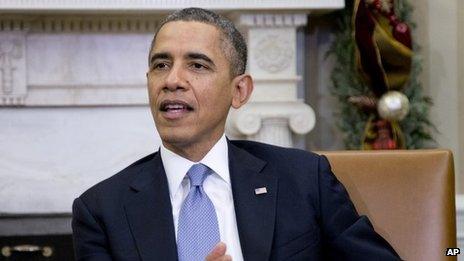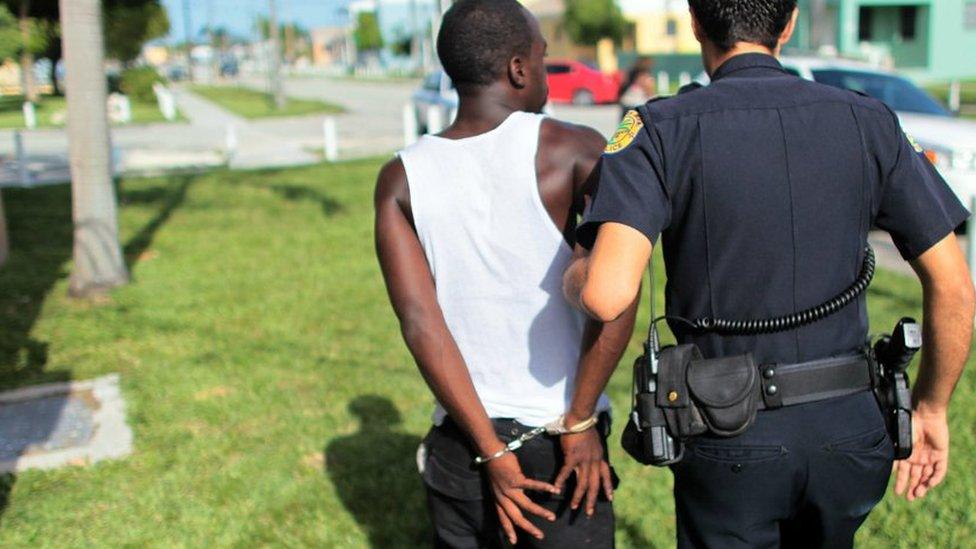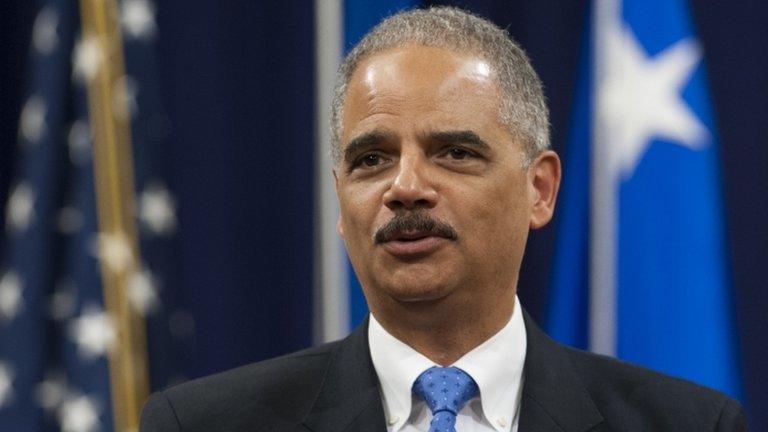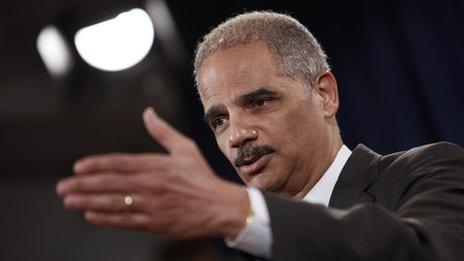Obama commutes eight drug prison terms
- Published
Why does Wisconsin send so many black people to jail?
President Barack Obama has commuted the sentences of eight Americans who would have had shorter prison terms under current drug sentencing laws.
Each of the six men and two women had served more than 15 years in prison for charges related to crack cocaine.
A 2010 law reduced the disparity in sentencing between crack and powdered cocaine offences.
And in August, the administration dropped mandatory minimum sentences for non-violent drug offenders.
Critics say that heavy drug sentences have hit minorities hardest.
'Too late'
In a statement, Mr Obama said the 2010 law, the Fair Sentencing Act, had begun "to right a decades-old injustice, but for thousands of inmates, it came too late".

President Barack Obama has previously commuted the sentence of only one person
"Instead, because of a disparity in the law that is now recognised as unjust, they remain in prison, separated from their families and their communities, at a cost of millions of taxpayer dollars each year."
Some 47% of US prison inmates have been incarcerated for drug offences, according to the Federal Bureau of Prisons.
Many of those with newly commuted sentences were young when they received lengthy prison terms. Six of those on the commutation list had been sentenced to life in prison.
Most will be released in April. One man will go free immediately and another will be released in 2018.
Among those ending their prison terms:
Reynolds Wintersmith, a first-time drug offender who rejected a plea deal after his arrest aged 19 in 1994
Stephanie George, who received a life sentence in 1997 for charges stemming from crack cocaine her boyfriend stored in her loft
Clarence Aaron, who first applied for clemency in 2001 after being sentenced to a life term in 1993 in a case where he did not buy or sell the drugs in question. A pardon attorney reportedly left out new, key information in the 2008 version of Aaron's bid for clemency to the White House, external
Before this, Mr Obama had commuted only one sentence in the five years of his presidency, also involving another drug case, and had pardoned 39 people.
On Thursday, the president also pardoned 13 others for various crimes. All had already served their full prison terms.
A pardon forgives a crime and wipes out the conviction, while a commutation leaves the conviction but ends the punishment.
In August, US Attorney General Eric Holder announced a major shift in federal sentencing policies, targeting long mandatory terms that he said have flooded the nation's prisons with low-level drug offenders and diverted crime-fighting dollars that could be far better spent.
And a bill in Congress would apply the Fair Sentencing Act to some drug offenders already in prison, allowing potential clemency to a group of people estimated to be in the thousands by advocacy groups.

Some 47% of US prison inmates have been incarcerated for drug offences
- Published12 August 2013

- Published13 August 2013
